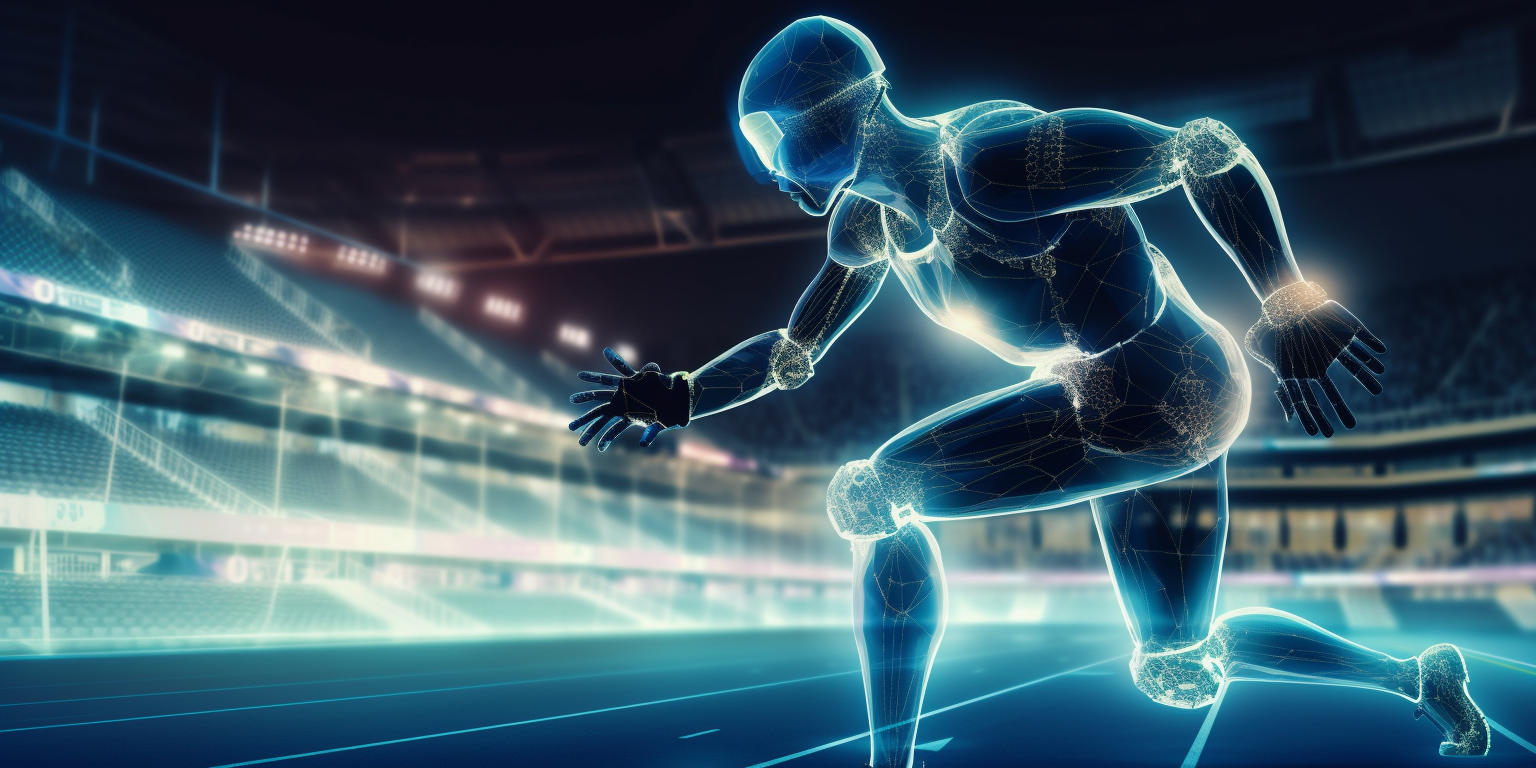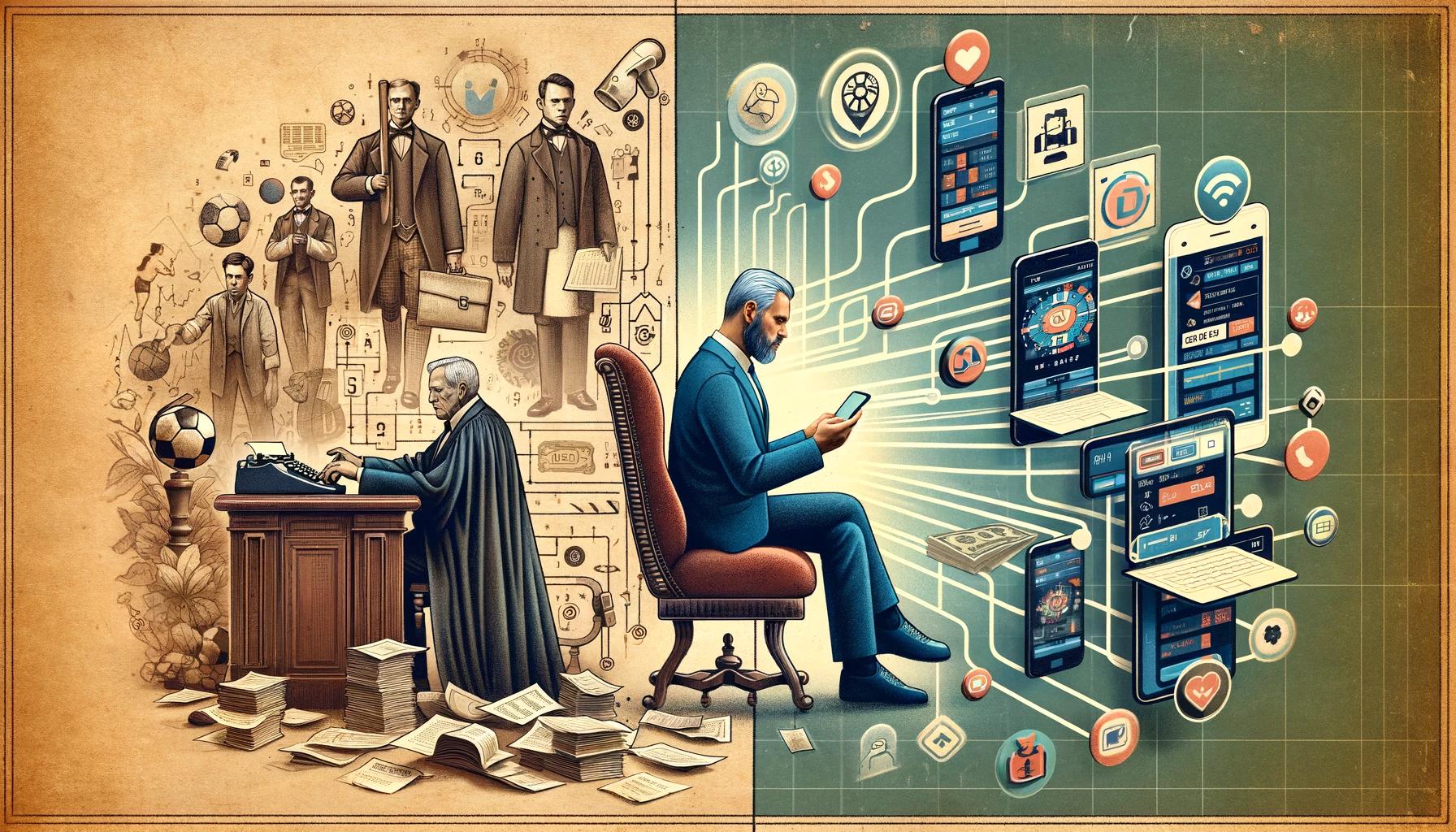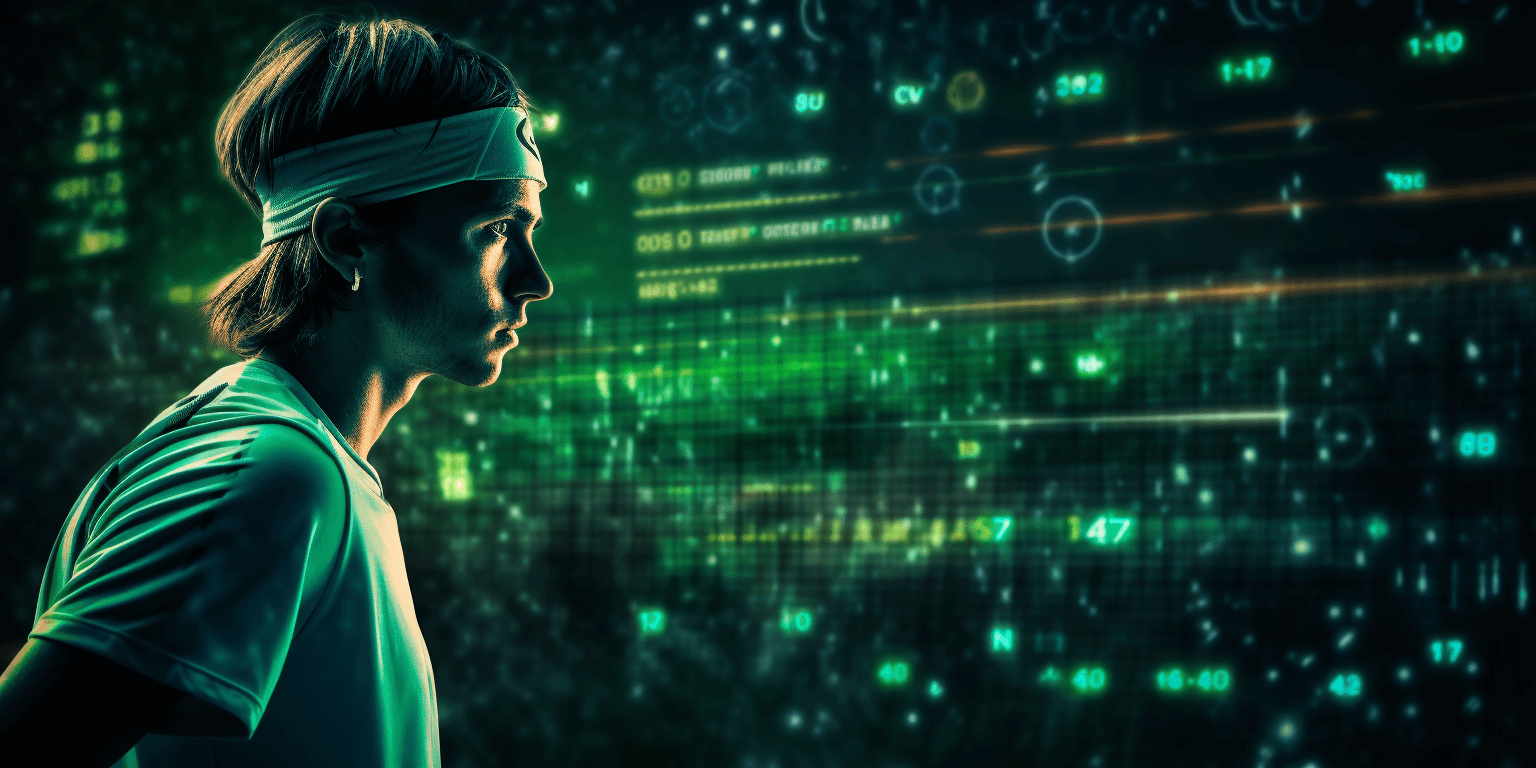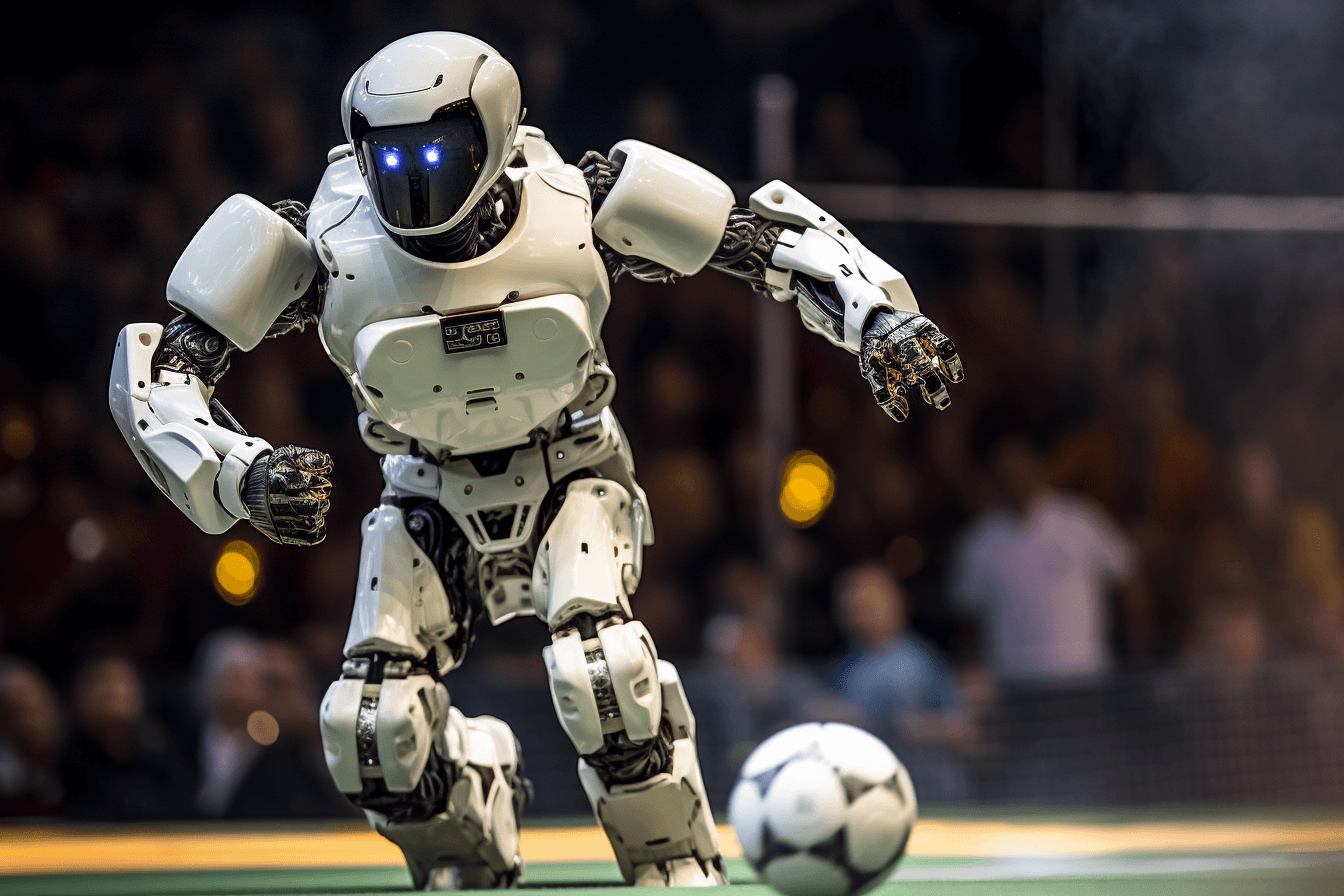Artificial intelligence (AI) has revolutionized many industries, and sports coaching is no exception. With the help of AI, coaches can provide personalized coaching to athletes, which can lead to better skill development and performance optimization.
One of the most significant advantages of AI in sports coaching is the ability to analyze vast amounts of data. Coaches can use AI algorithms to analyze an athlete’s performance data, including their strengths and weaknesses, and create personalized training plans based on that data. This approach can help athletes improve their skills more efficiently and effectively.
AI can also help coaches monitor an athlete’s progress in real-time. With the help of sensors and wearable technology, coaches can track an athlete’s movements and provide feedback on their technique. This approach can help athletes make adjustments to their technique and improve their performance.
Another advantage of AI in sports coaching is the ability to provide personalized feedback. Coaches can use AI algorithms to analyze an athlete’s performance data and provide feedback on specific areas that need improvement. This approach can help athletes focus on their weaknesses and make targeted improvements.
Finally, AI can help coaches make better decisions. With the help of AI algorithms, coaches can analyze data from multiple sources, including video footage, performance data, and scouting reports, to make informed decisions about strategy and tactics. This approach can help coaches make better decisions and improve their team’s performance.
In conclusion, AI has the power to revolutionize sports coaching. With the ability to analyze vast amounts of data, provide personalized coaching, and make better decisions, AI can help athletes improve their skills and optimize their performance. As AI technology continues to evolve, we can expect to see even more exciting developments in sports coaching.
Benefits of AI Coaching
With the help of AI, coaches can provide personalized coaching to athletes, which can lead to significant improvements in skill development and performance optimization.
One of the biggest benefits of AI coaching is that it can provide athletes with personalized feedback based on their individual strengths and weaknesses. This feedback can help athletes identify areas where they need to improve and develop their skills more effectively.
AI coaching can also help coaches identify patterns in an athlete’s performance that may not be immediately apparent. By analyzing data from sensors and other sources, AI can help coaches identify areas where an athlete may be struggling and provide targeted coaching to help them improve.
Another benefit of AI coaching is that it can help athletes optimize their performance by providing real-time feedback during training and competition. This feedback can help athletes make adjustments to their technique or strategy on the fly, which can lead to better results.
Overall, the power of artificial intelligence in sports coaching is undeniable. By providing personalized coaching, skill development, and performance optimization, AI coaching can help athletes reach their full potential and achieve their goals.
Examples of Coaching Systems
Artificial intelligence (AI) has revolutionized the way sports coaching is done. With AI, coaches can now provide personalized coaching to athletes, helping them develop their skills and optimize their performance. Here are some examples of coaching systems that use AI:
1. Virtual Reality (VR) Coaching Systems: These systems use VR technology to simulate game scenarios and provide athletes with real-time feedback on their performance. This helps athletes develop their skills and improve their decision-making abilities.
2. Wearable Technology: Wearable technology such as smartwatches and fitness trackers can be used to monitor an athlete’s performance and provide personalized coaching. For example, a coach can use data from a smartwatch to track an athlete’s heart rate and provide feedback on their training intensity.
3. Video Analysis: Video analysis software uses AI to analyze an athlete’s performance and provide feedback on areas that need improvement. This helps athletes identify their strengths and weaknesses and develop their skills accordingly.
4. Chatbots: Chatbots can be used to provide personalized coaching to athletes. For example, a chatbot can provide athletes with training plans and nutrition advice based on their individual needs and goals.
5. Predictive Analytics: Predictive analytics uses AI to analyze data and predict future outcomes. This can be used to optimize an athlete’s performance by identifying areas that need improvement and providing personalized coaching to address those areas.
In conclusion, AI has the power to transform sports coaching by providing personalized coaching, skill development, and performance optimization. With the help of AI, coaches can help athletes reach their full potential and achieve their goals.
Personalized Coaching and Skill Development
With the help of AI, coaches can now provide personalized coaching and skill development to athletes, leading to better performance optimization.
AI algorithms can analyze vast amounts of data, including video footage, biometric data, and performance metrics, to identify areas where athletes need improvement. This data can then be used to create personalized training programs that target specific weaknesses and help athletes reach their full potential.
One of the most significant benefits of AI in sports coaching is the ability to provide real-time feedback. With the help of sensors and wearable technology, coaches can monitor an athlete’s performance in real-time and provide immediate feedback on technique, form, and other critical factors. This feedback can help athletes make adjustments on the fly, leading to better performance and reduced risk of injury.
AI can also help coaches identify patterns and trends in an athlete’s performance over time. By analyzing data from multiple training sessions and competitions, coaches can identify areas where an athlete is consistently underperforming and develop targeted training programs to address these issues.
Overall, the power of AI in sports coaching lies in its ability to provide personalized coaching and skill development. By analyzing vast amounts of data and providing real-time feedback, coaches can help athletes reach their full potential and achieve their goals. As AI technology continues to evolve, we can expect to see even more exciting developments in the world of sports coaching.
Performance Optimization
With the help of AI, coaches can provide personalized coaching to athletes, which can lead to significant improvements in skill development and performance optimization.
AI-powered coaching tools can analyze an athlete’s performance data and provide insights into areas that need improvement. This data can be used to create personalized training plans that are tailored to the athlete’s specific needs. For example, if an athlete is struggling with a particular skill, the AI-powered coaching tool can provide drills and exercises that focus on that skill.
AI can also be used to monitor an athlete’s progress over time. By analyzing performance data, coaches can track an athlete’s improvement and adjust their training plan accordingly. This can help athletes reach their full potential and achieve their goals.
In addition to personalized coaching, AI can also be used to improve team performance. By analyzing data from multiple athletes, coaches can identify patterns and trends that can be used to optimize team strategies and tactics. This can lead to better team performance and more wins.
Overall, the power of AI in sports coaching is undeniable. With personalized coaching and performance optimization, athletes can reach their full potential and achieve their goals. As AI technology continues to evolve, we can expect to see even more advancements in sports coaching and performance optimization.
Limitations
With AI, coaches can provide personalized coaching to athletes, helping them develop their skills and optimize their performance. However, there are still some limitations to the use of AI in sports coaching.
One of the limitations of AI in sports coaching is the lack of human interaction. While AI can provide personalized coaching, it cannot replace the human touch. Athletes need human interaction to build trust and confidence in their coaches. Without this trust, athletes may not be as receptive to the coaching they receive.
Another limitation of AI in sports coaching is the lack of real-time feedback. While AI can analyze data and provide insights, it cannot provide real-time feedback during a game or practice. This means that athletes may not be able to make adjustments to their performance as quickly as they need to.
Finally, AI in sports coaching is limited by the quality of the data it receives. If the data is inaccurate or incomplete, the insights provided by AI may not be useful. Coaches need to ensure that the data they collect is accurate and relevant to the athlete’s performance.
Despite these limitations, AI has the potential to revolutionize sports coaching. With personalized coaching and performance optimization, athletes can reach their full potential. As technology continues to advance, we can expect to see even more innovative uses of AI in sports coaching.
Artificial intelligence (AI) has revolutionized the way sports coaching is done. With AI, coaches can provide personalized coaching to athletes, helping them develop their skills and optimize their performance.
One of the key benefits of AI in sports coaching is the ability to analyze large amounts of data. Coaches can use AI algorithms to analyze an athlete’s performance data, including their movements, speed, and other metrics. This data can then be used to identify areas where the athlete needs to improve and develop a personalized training plan to help them achieve their goals.
AI can also be used to provide real-time feedback to athletes during training and competitions. For example, sensors can be placed on an athlete’s body to track their movements and provide feedback on their technique. This can help athletes make adjustments on the fly and improve their performance in real-time.
Another benefit of AI in sports coaching is the ability to simulate game situations. Coaches can use AI-powered simulations to create scenarios that mimic real-game situations, allowing athletes to practice and develop their skills in a safe and controlled environment.
Overall, the power of AI in sports coaching is undeniable. With AI, coaches can provide personalized coaching, develop athletes’ skills, and optimize their performance. As AI technology continues to evolve, we can expect to see even more innovative uses of AI in sports coaching in the future.






